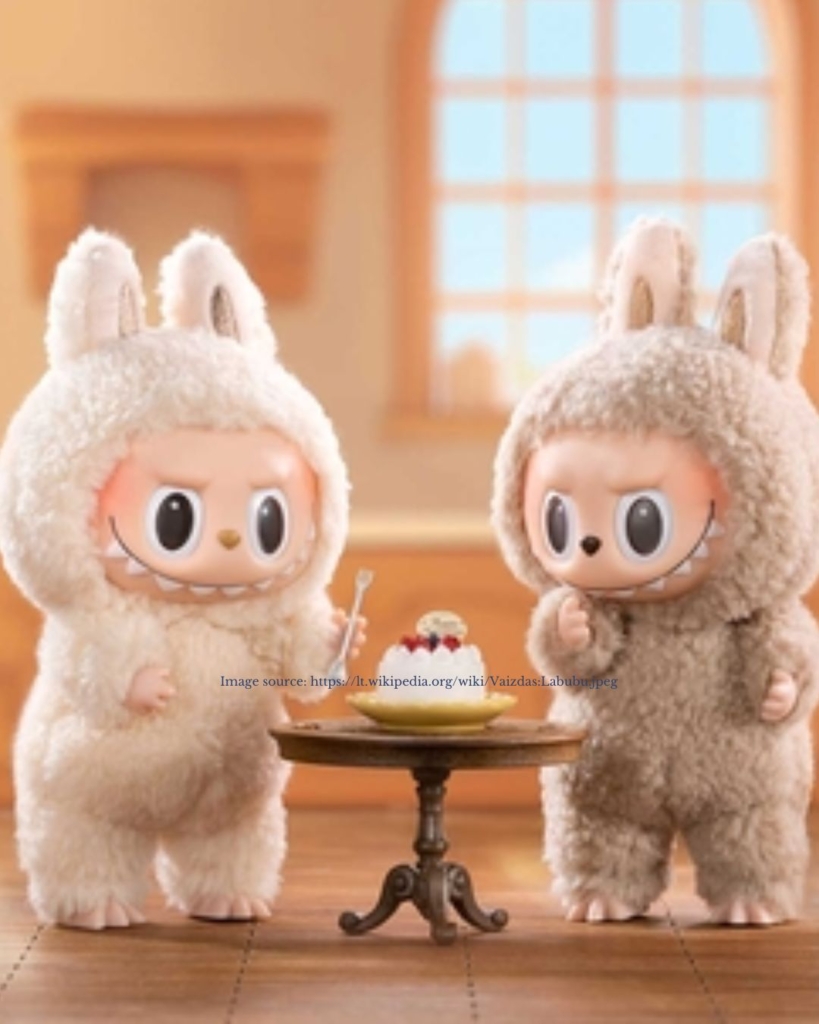Overview:
The maker of Labubu dolls, Pop Mart, launches a trademark complaint against makers of dupe Lafufu dolls. How might consumer surveys address La-fuss?
LaFACTS: The Rise of Fake Collectibles: Labubu and Lafufu
Beijing-based toy company Pop Mart sells designer character-inspired toys using a “blind box” format, which ensures that customers don’t know which toy they’re getting until they open the box. Pop Mart partners with various pop artists, making its characters even more collectible—and its growth and market share formidable. Its growth is attributed to those partnerships, as well as its effective marketing methods.
Among Pop Mart’s most famous products is its line of elf-like dolls known as Labubus, which combine the element of surprise with limited availability, excitement, and brand resonance. Labubu Dolls are the result of a partnership between Hong Kong artist Kasing Lung and Pop Mart, and they have achieved cult status, particularly among Gen Z and younger collectors in the US, fueling intense demand, resale price spikes, and even crowd surges. Labubu’s retail prices are between $20 and $30, but they can resell for much more. In one case, a life-size Labubu sold at auction for over $170,000.
As Labubu’s popularity continues to soar, so does its off- brand market. Off-brand and are sold online or even in gas stations. These curious counterfeits have their collectors, who prefer Lafufus that are intentionally deformed. The more exaggerated the flaws, including more than nine teeth, unusual colors, and crooked ears, the better. Fueling the demand for both Lafufu and Labubu are the unboxing videos by collectors on TikTok and Reddit. Consumers are also paying premiums for Lafufus, raising broader questions about brand protection in the age of dupes and secondary markets.
Dupes, Viral Knockoffs, Trademark Infringement, and Enforcement
Real Labubus each have nine teeth and a peach-colored face, and are delivered in a matte box with an official QR code and a seal on its right foot, visible only under a UV lamp. The Lafufus have deformities that can make them more collectible. These dupes raise trademark challenges for Pop Mart and raise questions about brand dilution, consumer confusion, and market share or control.
Complicating some of these questions is the “blind box” format, which drives much of the demand. The Lafufu phenomenon, on its (doll) face, presents a case of potential trademark infringement. Dupes sold as knockoffs may be subject to US trademark law, and Pop Mart holds various trademarks, copyrights, and intellectual property protections. If it chose to take action in the United States against counterfeit manufacturers, what issues might be raised?
Survey Use in a Labubu Dispute
In a lawsuit, Pop Mart could claim trademark infringement, arguing that consumers are likely to be confused by the name “Lafufus,” or by the appearance of trade dress elements, such as the dolls’ design or their blind box packaging. It may also allege that the Labubu brand is diluted through blurring or tarnishment, particularly if consumers perceive problems with the quality of the knockoffs.
Courts in the United States may accept surveys of consumer perception as evidence. Pop Mart or the defendant could introduce likelihood of confusion surveys, likelihood of dilution surveys, or surveys that measure false or deceptive advertising. These surveys could measure whether consumers think Lafufus are made, associated with, or endorsed by Pop Mart; whether exposure to Lafufus weakens the Labubus’ brand distinctiveness; and/or whether the Labubu design has acquired secondary meaning in the market. The data from these surveys provides evidence that could either support Pop Mart’s claim of infringement or bolster a defendant’s argument that no confusion exists.
Survey Strategies to Strengthen Your Case
Pitting Labubu against Lafufu, hypothetically, not only raises questions about trademark protection and consumer survey use, but also provides lessons in IP law and modern branding and marketing. Dupe culture continues to grow, and questions about the distinction between parody and infringement become increasingly blurred; however, consumer surveys continue to help regulators and courts resolve disputes.
MMR Strategy Group, an IMS Legal Strategies company, designs, conducts, and testifies in support of surveys offered as evidence in intellectual property disputes, delivering reliable research. To discuss how we can strengthen your case, contact us today.
